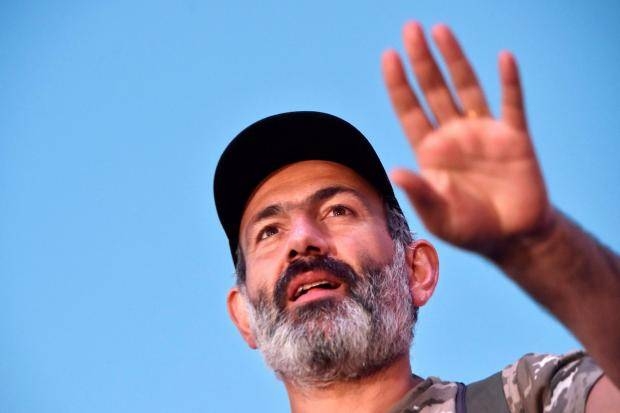On Pashinyan's Election
The National Assembly of Armenia elected the leader of the Armenian protest movement, 42-year-old Nikol Pashinyan as the new Prime Minister of the country, which, according to the new constitution, is now the most influential position in Armenia.
The parliamentary majority of Republican Party party voted for Pashinyan, asper their announcement released a week ago.
On April 17, the Armenian parliament elected Prime Minister Serzh Sargsyan, the ex-President of the country, who a week after the end of his presidential term became the PM of the country, so maintaining most of the power in his own hands.
Dissatisfaction and disappointment with the 10-year rule of Sargsyan led to a huge national movement against his election as a PM.
Sargysan was forced to resign as the PM on the 10th consecutive day of the protests against his nomination. He worked as Prime Minister for just 7 days.
The protests which brought the resignation of Serzh Sargsyan were the biggest in Armenia since the Declaration of Independence in 1991 and started as sudden movement, unxpected by both experts and the political opposition.
Nikol Pashinyan was a famous journalist in Armenia Editor-in-Chief of opposition newspaper “Haykakan Jamanak” (Armenian Times).
Pashinyan started his political career in 2007 as a leader of “Impeachment,” a political alliance lead by him. Later, he joined the protest movement lead by the First President of Armenia, Levon Ter-Petrosyan (1991-1998), who was again nominated as presidential candidate in 2007, so challenging Serzh Sargsyan during the presidential elections.
The results of the 2007 presidential elections were the most criticized elections in Armenian electoral history, and lead to the large popular movement supporting the candidacy of the First President of the country Ter-Petrosian.
On the 10th consecutive day of non-protest rallies in Armenia, lead by Ter-Petrosian, the government announced an emergency situation, and supressed the peaceful protests by brutal force on March 1, 2008, killing 10 and wounding hundreds of peaceful protestors.
Pashinyan, who was one of the main supporters of Ter-Petrosian, became a target for political presecutions and was forced to spend almost 1.5 years “underground.” Later in 2009, he was willingly presented to the judiciary and in 2010 was sentenced to 7 years imprisonment, making him the most famous political prisoner in Armenia.
In May 2011, as a result of dialogue between the political opposition lead by Ter-Petrosian and the authorities of Armenia, Pashinyan was released from prison and in 2012 was elected as an MP, presented by the political alliance “Armenian National Congress” lead by Ter-Petrosian.
Later, Pashinyan brought together his ties with the Armenian National Congress and organized his own small and rather marginalized political party “Civil Agreement” which entered Parliament in a political alliance with the “Republic Party of Armenia" lead by former PM Aram Sargsyan and “Bright Armenia” party, making up 8% in Parliament.
Pashinyan lead the Parliamentary Minority for a year before becoming PM of Armenia.
By Karen Tovmasyan in Yerevan
Image source: independent.co.uk












